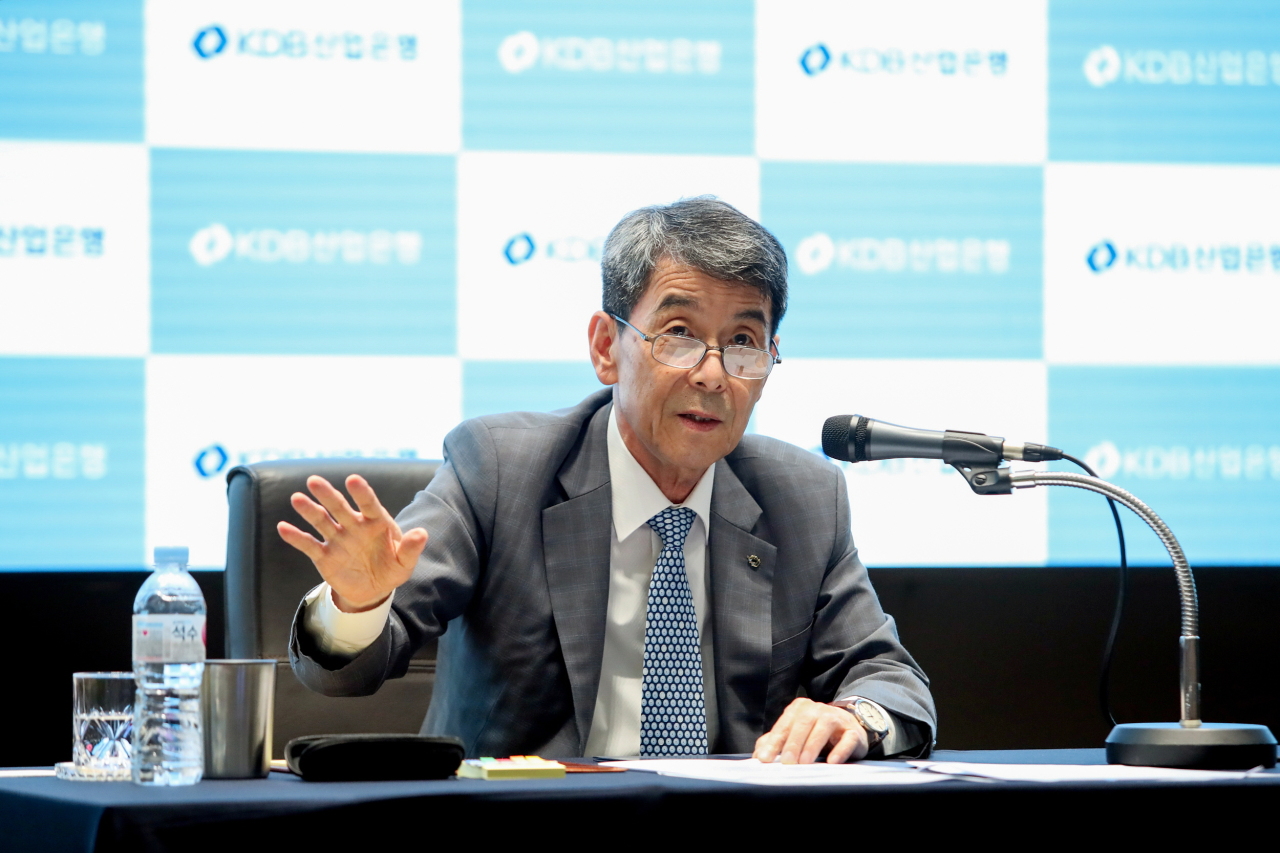 |
Korea Development Bank Chairman Lee Dong-gull speaks in a virtual press conference held in its headquarters in Seoul on Monday (KDB) |
Korea Development Bank’s Chairman Lee Dong-gull called on the government to take down the antitrust hurdles standing in the way of proposed mergers, which he said are crucial for businesses to survive.
Lee leads the main creditor behind the business integration of Korea’s flagship air carriers Korean Air Lines and Asiana Airlines, as well as the integration of the world’s largest shipbuilders Daewoo Shipbuilding and Marine Engineering and Hyundai Heavy Industries -- both based in Korea.
Marking his fourth anniversary in leading the state-run lender, Lee told reporters that the antitrust body in Korea should be equipped with a “progressive mindset” in order to prevent megadeals from falling to pieces, adding the sooner the merger deals are complete, the earlier the indebted companies can normalize.
“Given the consequences of a weak company’s failure to normalize, I urge the antitrust authorities to have a more progressive mindset when it comes to protecting the domestic industry,” Lee said in a virtual press conference held in KDB headquarters in Seoul on Monday.
“It is a matter of industrial reorganization. ... We are not here to rip off consumers.”
The antitrust hurdle at home and abroad has become a headache to the KDB, thwarting moves to salvage Asiana and DSME through mergers with healthier rivals, according to Lee.
As for DSME, the European antitrust watchdog has sounded the alarm over DSME and HHI’s liquefied natural gas carrier businesses should the two companies’ businesses come under the same roof, Lee said.
To the creditor, the delayed antitrust cases are not the only cause for concern to keep afloat troubled companies.
A prolonged post-merger integration of Korean Air and Asiana, dragged down by the integration of computer-aided flight management system, is taking longer than what the state-run lender expected. In December, Korean Air announced a KDB-sponsored plan to control the nation’s second-largest aviation firm Asiana Airlines.
As for DSME, local opposition from labor unions and local governments to the merger has stalled plans, Lee added. HHI announced its merger with DSME in March 2019, giving HHI a controlling 55.7 percent stake in DSME.
The HHI-DSME deal is awaiting antitrust approval from Japan, the European Union and Korea, while it has received a green light from China, Singapore and Kazakhstan. Meanwhile, the Korean Air-Asiana deal has gained approval from Taiwan and Thailand, and is being reviewed in Korea, the United States, China, Japan, Vietnam and the EU.
None of the two merger cases have yet to win an antitrust approval in Korea.
By Son Ji-hyoung (
consnow@heraldcorp.com)








